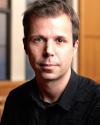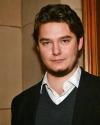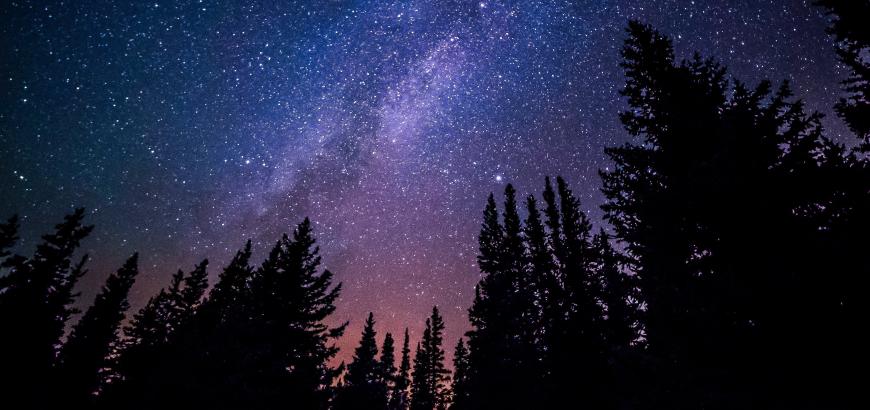The UW Composition Studio presents "In a weightless quiet,” a concert of music by faculty composers Joël-François Durand, Huck Hodge, and Yiğit Kolat and UW student composers Sandesh Nagaraj and Max Williams.
Masks are required in all indoor spaces on the UW campus. Patrons must show proof of vaccination or recent negative provider-administered COVID-19 PCR test for entry to live events at Meany Hall. Individuals unable to be fully vaccinated, including children under age five and people with a medical or religious exemption, must have proof of a negative provider-administered COVID-19 PCR test (taken within 72 hours of the performance). UW staff will check for proof of vaccination and negative COVID PCR tests at the doors as a condition of entry. Proof of negative test result must come from a test provider, a laboratory or a health care provider. Home or self-administered tests will not be accepted. Details of these policies and procedures are available here.
Program
In a weightless quiet
Saturday, March 5, 7:30 p.m.
Brechemin Auditorium
Joël-François Durand: In a weightless quiet
Luke Fitzpatrick, violin
Sandesh Nagaraj: Thread of the Universe
for electronics and video
Max Williams: T-8
Jaden Wang, piano
Yiğit Kolat: Inference Engine
for resonant sheet metal and electronics
Huck Hodge: Studies in Solitude
Rachel Yoder, clarinet; Luke Fitzpatrick, violin
Program Notes
In a weightless quiet belongs to a group of works that I started to write in 2019, in which I explore the formal and structural potentials of an acoustic phenomenon known to all musicians when they tune their instruments: the beats that occur when two tones of very close frequencies are played at the same time. The first work in this group is for viola and ensemble (Geister, schwebende Geister, for viola and ensemble 2019-20); the second is this violin piece and the third to date is my second string quartet Canto de amigo written in 2020. In each of these works, the beats are generated by playing one of the open strings of the instruments at the same time as a similar pitch with a microtonal deviation, on another string.
What I find fascinating in this use of controlled beat patterns is that they actually permit to directly experience what is usually considered a physical/mathematical concept. In sensory experience (auditory perception), we cannot be aware of the mathematical ratio between the frequencies of two notes played at the same time; it's an abstract concept (we don't hear a 3:2 ratio when we hear a fifth; we hear a fifth). But when the pitches are very close, the phenomenon of "first-order beat" becomes an actual experience. How this works is fairly simple to explain: if for example, the two frequencies are 3 Hz apart—say, 443 Hz and 440 Hz—we hear two things: first, the two original frequencies become one single tone (mathematically, it’s the median value of the two); additionally, we hear a pulsation of three beats animating this single tone. The “median value” in this case is 441.5 Hz; and the pulsation that accompanies it—the difference between the two original frequencies—is three beats per second which, when we hear them, is the audible manifestation of an arithmetic equation, in this case, the subtraction 443 - 440 = 3!
The form of In a weightless quiet is based on a series of sections that explore the tonal regions of the three open strings of the violin A, D and E, and their extensions through microtones that generate 3, 5, 7 and 11 beats per second. After an introduction centered on A, the sections that follow tend to begin with the low D and ascend from to A and E in several successive waves. The focus on these three tonal regions and their interactions with each other give each section a particular color and character. The phenomenon of beats itself can be presented in gestures that are sometimes too fast for the pulsations to be clearly audible (as in the very beginning for example). At other times, longer held notes make them clearer and the beatings are then clearly perceived as regular rhythmic subdivisions of the basic pulse. So, when they are not clearly heard, one cannot be sure whether it's because the pitches are “out of tune” or whether they express something else. When the line slows down, the beats are revealed without ambiguity. In between these two extremes, there is a whole vocabulary of gestures that can evoke these subdivisions in different ways: repeated notes, slow or rapid alternance between two strings, tremolos etc. I find fascinating how these beats have a sort of extra-worldly character, appearing seemingly out of nowhere since they are not directly produced by the performer, who is playing two pitches but not the rhythmic beating itself.
—Joël-François Durand
III. Départ
— dans l'affection et le bruit neufs
BIOS

Composing, writing, teaching, inventing new ways of hearing – all are linked in the work of Joël-François Durand. As a composer, his career was launched in Europe with important prizes: a Third Prize at in the 1983 Stockhausen Competition for the piano piece “…d’asiles déchirés…,” the Kranichsteiner Preis from the Darmstadt Summer Courses for New Music in 1990. Commissions and performances from many of today’s most significant ensembles followed – Ensemble Intercontemporain, London Sinfonietta, Arditti Quartet, Jack Quartet, Quatuor Diotima, ASKO, Ensemble Recherche, musikFabrik, Talea Ensemble, Dal Niente Ensemble, BBC Symphony Orchestra, Orchestre Philarmonique de Radio France, Deutsches Symphonie Orchester Berlin, Seattle Symphony Orchestra. Durand is Professor of Composition at the School of Music, University of Washington, as well as Acting Director. He has been awarded the Donald E. Petersen Endowed Professorship for 2019-22. Durand’s works are singular and powerful, combining rigorous and innovative structures with a prominent lyrical impulse. Durand’s music and personality received critical attention in the 2005 book Joël-François Durand in the Mirror Land (University of Washington Press and Perspectives of New Music) edited by his University of Washington School of Music colleague Jonathan Bernard, which features in addition to analyses by Bernard and several of the School’s students, an innovative self-interview authored by Durand himself. Recent projects for Durand include a work for large orchestra, Tropes de : Bussy, based on some of Debussy’s piano Préludes, commissioned by the Seattle Symphony Orchestra, which was premiered April 18-20, 2019 and a work for viola and ensemble, to be premiered by Melia Watras, viola and the Dal Niente ensemble in May 2020.
Commercial recordings of his music are available on the Auvidis-Naïve, Mode Records, Wergo, Albany Records and Soundset Recordings labels. In 2010, Durand embarked on a new path: he designed and started commercial production of a new tonearm for record players. The Talea, as it was called, took the audio world by storm and was followed by three further models, the Telos, the Kairos and most recently (2019), the Tosca also aimed at the most refined audio reproduction systems. For his work at his company Durand Tonearms LLC, he was made a University of Washington Entrepreneurial Fellow in 2010. As a guest composer and lecturer, Durand has contributed to the “Centre de la Voix” in Royaumont, France where he was co-director of the composition course in September 1993, the “Civica Scuola di Musica” in Milan, Italy (1995), the Royal Academy for Music in London, UK (1997), the Internationale Ferienkurse für Neue Musik in Darmstadt (1984, 1990, 1992, 1994), the “VIII. Internationaler Meisterkurs für Komposition des Brandenburgischen Colloquiums für Neue Musik”, Rheinsberg (1998), Washington State University, Pullman, WA (2004), and Stanford University (2006), among others. In the Fall 1994 he was Visiting Assistant Professor in Composition at the University of California at San Diego.
Durand is listed in the New Grove Dictionary of Music and Musicians.

Huck Hodge is professor and chair of the composition program in the school of music. A composer of “harmonically fresh work", "full of both sparkle and thunder” (New York Times), his music has been praised for its “immediate impact” (Chicago Tribune), its "clever, attractive, streamlined" qualities (NRC Handelsblad, Amsterdam), and its ability to "conjure up worlds of musical magic” with “power and charisma" (Gramophone Magazine, London). There is a dramatic interplay of color, light, and darkness in his music, which emerges from an uncanny blending of pure and dissonant harmonies, widely spaced orchestrations and vast, diffuse timbres.
Hodge is the recipient of many prestigious awards and distinctions. Among these is the Charles Ives Living, the largest music award conferred by the American Academy of Arts and Letters. His other major awards include the Rome Prize (Luciano Berio Fellowship), the Gaudeamus Prize, a Guggenheim Fellowship, commissions from the Koussevitzky Foundation in the Library of Congress, the Fromm Foundation at Harvard University, the American Composers Forum (JFund), the Barlow Endowment, Music at the Anthology (MATA), the American Academy in Rome, Muziek Centrum Nederland, Musik der Jahrhunderte, and the National Theater and Concert Hall of Taiwan, in addition to multiple grants and awards from ASCAP, the Bogliasco Foundation, Copland House, the Deutscher Akademischer Austauschdienst (DAAD), MacDowell, New Music USA, the Siemens Musikstiftung, and Yaddo.
His music has been performed at Carnegie Hall, Lincoln Center and at numerous major festivals — the New York Philharmonic Biennial, Berliner Festspiele, Gaudeamus Muziekweek, Shanghai New Music Week (上海当代音乐周), ISCM World Music Days, and many others in over twenty countries on six continents. Other performances include those by members of the Berlin Philharmonic and Ensemble Modern, the ASKO / Schönberg Ensemble, the Seattle Symphony, and the Orchestra of the League of Composers. His chamber music has been premiered, performed and recorded by a long list of soloists and ensembles such as the Daedalus, JACK, Mivos, and Pacifica string quartets, the Adapter, Aleph, Argento, Dal Niente, Divertimento, Insomnio, SurPlus, and Talea ensembles, and his colleagues David Gordon, Donna Shin, Cristina Valdés, Cuong Vu, and Bonnie Whiting. His published music is distributed by Alexander Street Press (US) and Babel Scores (France). Recordings of his music appear on the New World and Albany record labels and have been featured in numerous national and international broadcasts.
Before joining the University of Washington, Hodge taught composition at Columbia University, where he earned his M.A. and D.M.A. studying with Fred Lerdahl, George Lewis, and Tristan Murail. Prior to this, he studied composition, theory, and new media at the Staatliche Hochschule für Musik und Darstellende Kunst in Stuttgart, Germany, with Marco Stroppa and Georg Wötzer as well as music, German literature and philosophy at the University of Oregon and the Universität Stuttgart. He has been a visiting professor/invited lecturer on music and aesthetics at a variety of institutions including the University of Chicago, CNMAT/UC Berkeley, UCSD, Columbia University, Eastman School of Music, Manhattan School of Music, NYU, and the Universität der Künste in Berlin, and he served for three years as the director of the Merriman Family Young Composers Workshop at the Seattle Symphony.

Yiğit Kolat’s music draws inspirations and expressions from a wide array of topics ranging from bytebeats to the application and ethics of artificial intelligence in music. The complicated political and social landscapes of his native Turkey and adopted United States often inform his diverse output. His works, described as “touching and convincing...a multi-sensory universe,” (K. Saariaho) have been recognized by a prestigious array of international organizations, including the Tōru Takemitsu Composition Award, the Queen Elisabeth Competition, Bogliasco Foundation, and the Concours International de Composition Henri Dutilleux. His music has been featured throughout the United States, Europe, and Asia by leading ensembles and soloists, among them the Tokyo Philharmonic, Solistes de L’Orchestre de Tours, The Nieuw Ensemble, Talea Ensemble, Argento New Music Project, Seattle Modern Orchestra, Ryoko Aoki, Donatienne Michel-Dansac, Bonnie Whiting, and Peter Sheppard-Skaerved. His music has been broadcast by the Japan Broadcasting Corporation (NHK) and Turkish Radio Television (TRT).
He has presented his research at conferences such as Conference on AI Music Creativity (University of Oxford, Vrije Universiteit Brussels), Spectralisms International Conference (IRCAM), and Reëmbodied Sound Symposium (Columbia University). Kolat earned his Doctorate of Musical Arts at the University of Washington, studying with Joël-François Durand.
